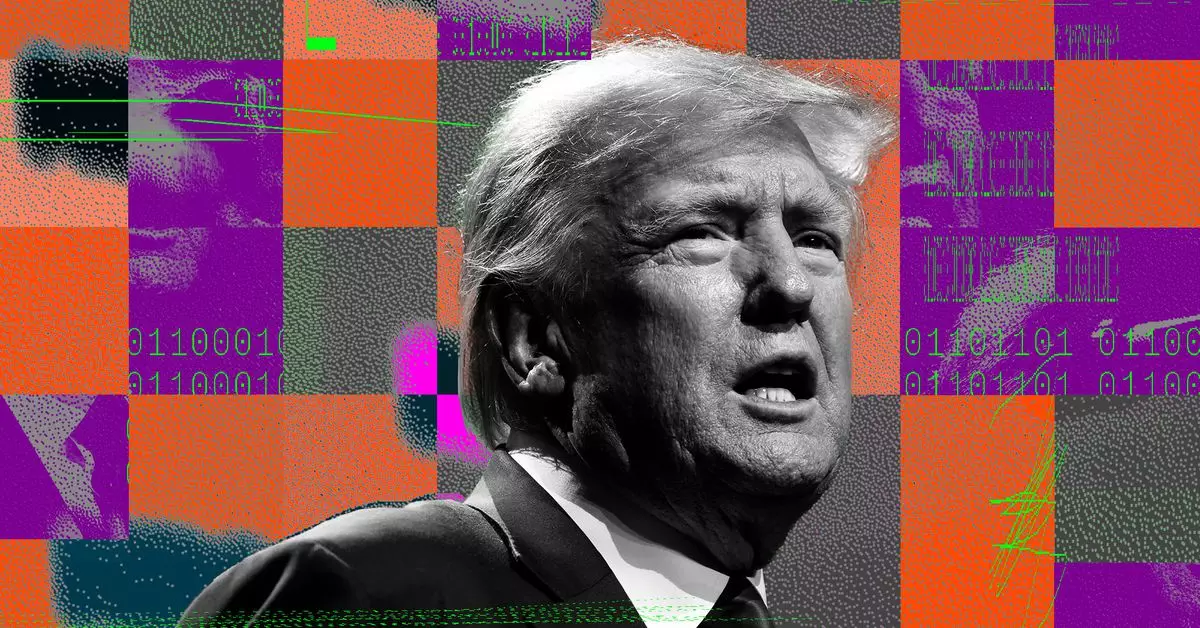In a striking appeal, former President Donald Trump is petitioning the Supreme Court to grant him the opportunity to negotiate a deal that could avert a ban on TikTok in the United States. This move highlights not only Trump’s distinctive approach to governance but also the ongoing debates surrounding digital platforms and national security. Trump’s insistence that he alone possesses the requisite skills for deal-making raises questions about the intersection of politics and technology, particularly in an era marked by rapid advancements and potential threats.
The essence of Trump’s argument, laid out in an amicus brief, is rooted in his belief that a political resolution is preferable to a legal battle over the controversial app. He emphasizes his unique standing as a political leader, suggesting that his electoral mandate and prior experience can yield a resolution that balances national security concerns with freedom of expression. However, the implications of his statements extend far beyond mere negotiation tactics—Trump is positioning himself as a mediator in a conflict that encapsulates broader societal issues related to technology, privacy, and individual rights.
The Supreme Court recently agreed to deliberate on the constitutionality of a bill passed by Congress that seeks to ban TikTok based on national security risks. This court case represents not only a legal challenge but a litmus test for how far the government can go in regulating digital platforms. Trump’s request aims to stay the enforcement of the bill that is set to take effect on January 19th, the day before his anticipated swearing-in. By doing so, he eliminates the urgency that could lead to a potentially hasty decision from the Court on critical First Amendment issues.
At its core, this scenario underscores the confusion surrounding the current legal framework governing digital content and its implications for free speech. With arguments asserting that banning TikTok could infringe upon constitutional rights, the Court’s ruling will have lasting consequences for many social media platforms. Trump’s assertion that he can resolve these matters politically may resonate with some, yet it poses a fundamental question: should social media platforms be subject to political negotiation, or are they inherently separate from the machinations of government?
Underlying the request for a negotiated solution are broader debates surrounding ownership and control of tech platforms. Trump suggests a scenario in which ByteDance, TikTok’s Chinese parent company, divests a significant portion of its stake to a U.S. company. This potential restructuring hints at a larger trend wherein the ownership of digital platforms becomes a matter of national security, raising concerns about the complexity of such negotiations. Trump claims that his status as a prominent figure on the app provides him with a unique perspective to advocate for TikTok’s place as a secure avenue for free speech. However, the ramifications of his involvement may complicate the negotiating landscape.
Moreover, Trump’s change in rhetoric following the successful engagement of TikTok during his 2024 campaign raises eyebrows regarding the integrity of political motivations. Having previously pushed for a ban, his newfound willingness to consider the platform’s merits reflects a pragmatic approach that appears to prioritize political expediency over principle. This duality brings into question the sincerity of his claims about protecting free expression, leading critics to argue that his motivations are as much about maintaining political relevance as they are about safeguarding digital rights.
A Complex Political Landscape
Despite Trump’s efforts to pivot towards a cooperative resolution, political pressure remains high for enforcing a ban on TikTok. A coalition of lawmakers, including high-profile senators such as Mitch McConnell and Ro Khanna, appears united in their conviction that TikTok poses a threat to national security. This ongoing debate not only reflects partisan divisions but also showcases a growing unease among politicians regarding the influence of foreign-owned social media platforms on American society.
As this saga unfolds, the implications for TikTok, its users, and the broader tech landscape continue to evolve. Trump’s appeal to the Supreme Court may serve as a flashpoint, galvanizing renewed discussions around technology, privacy, and governance. Ultimately, the negotiation of this digital frontier highlights the precarious balancing act between innovation, regulation, and the constitutional rights enshrined in American democracy. The outcome will be pivotal not just for TikTok, but for the future of digital media in the United States.


Leave a Reply